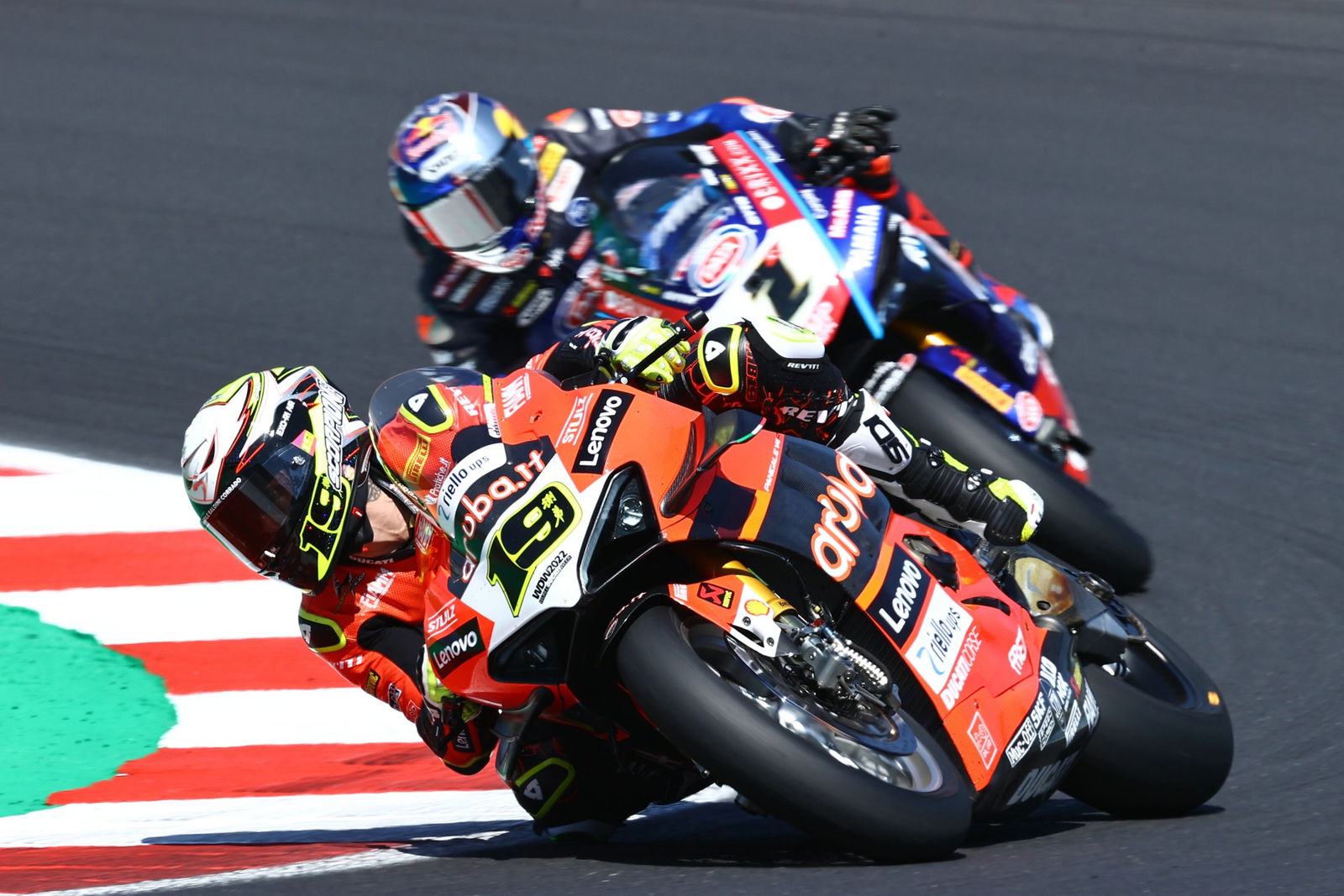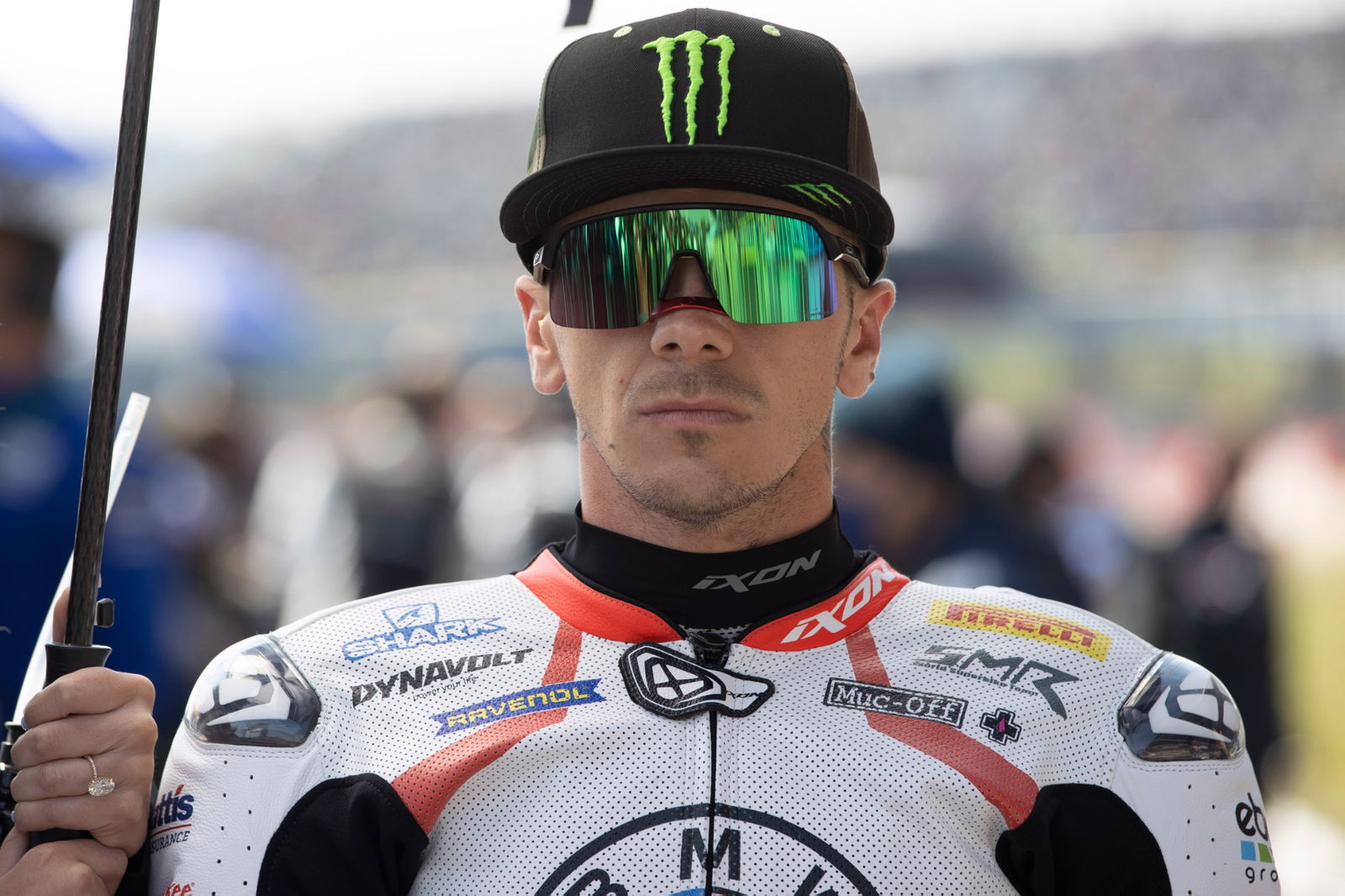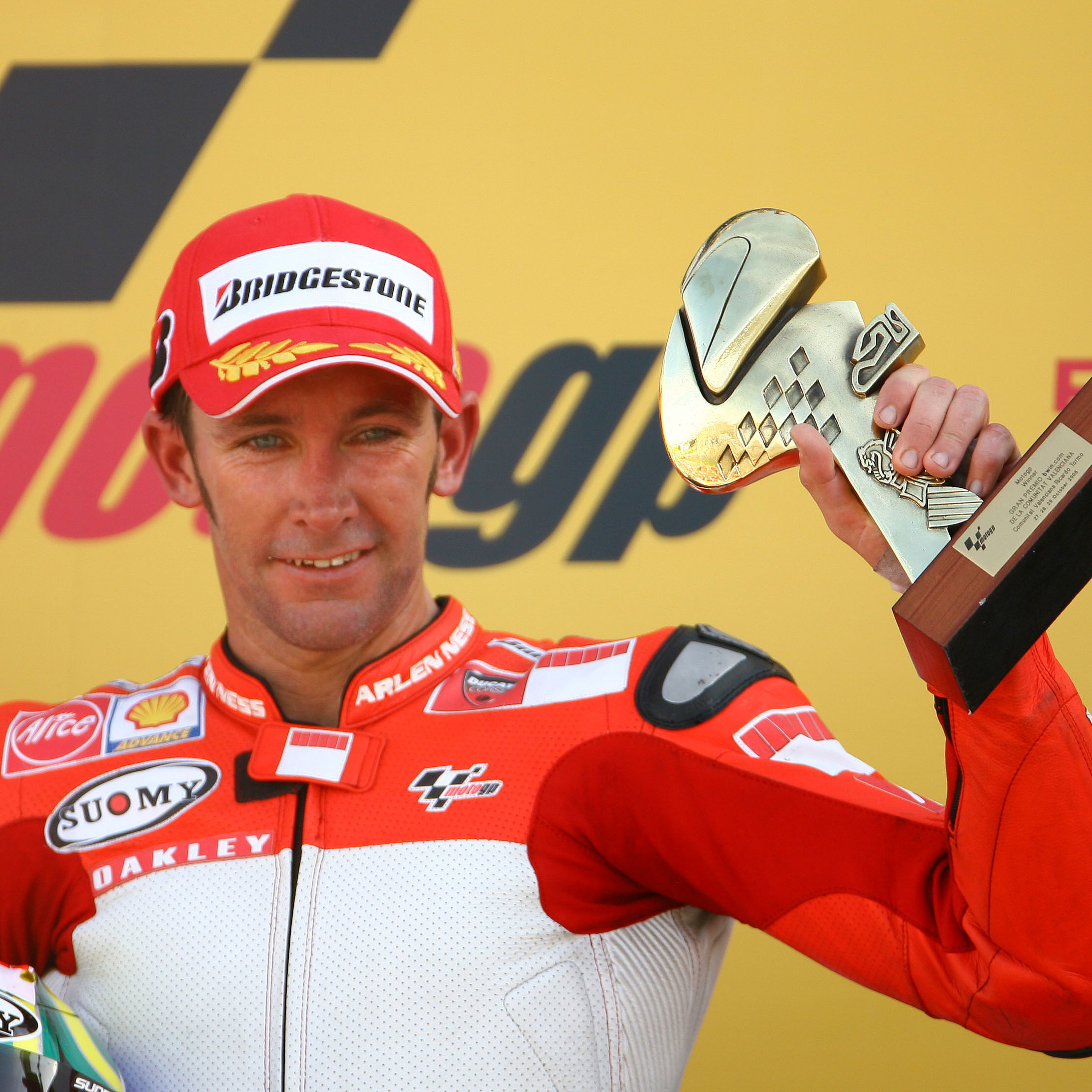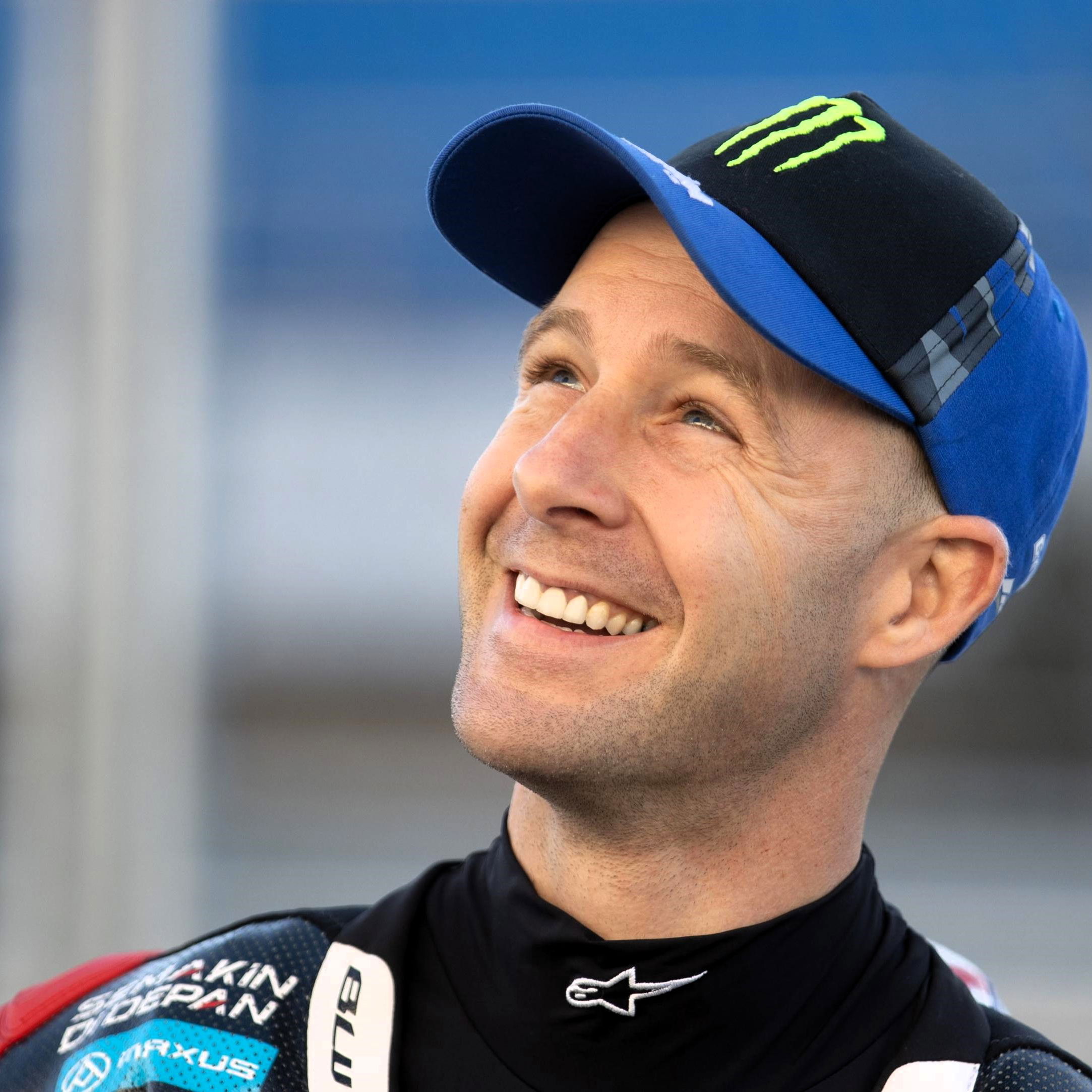World SBK - Alvaro Bautista: “I never felt like the Honda was ‘my bike’...” EXCLUSIVE

My comment towards Alvaro Bautista as we sit down - three years later - for another one-to-one is greeted with a laugh… a nervous one… but definitely a chortle at least.
It’s one of many he happily offers during our chat - even in response to the ‘Daddiest’ of my jokes - but not because I am a comic masquerading as a journalist, it’s because he is just that: Happy.
It’s a smile we hadn’t seen for some time, yet one we’ve become accustomed to once more as Bautista sprints into an early lead at the summit of the 2022 WorldSBK Championship. To date he has taken his grin to the podium in all 12 races thus far, the widest of which were spread on the six occasions he topped it.
Of course, we have been here before. His headline-grabbing transition to WorldSBK from MotoGP in 2019 yielded a record-breaking 11 straight wins from his first 11 starts aboard the new Ducati Panigale V4, a display so devastatingly dominant his name was almost being chiselled onto the title trophy.
Alas, a grimace of errors quickly changed the mood. So severe was Bautista’s downturn that in just a handful of races his ‘foregone conclusion’ of a title win was soon simply just ‘gone’ as he ceded a big first-half advantage to end the season a distant runner-up to Jonathan Rea.
It was a frown that remained sunny side down in the tough two years that followed racing the underwhelming Honda CBR1000RR-R. But that is past tense, this is now and as of today, not only is Bautista back with Ducati, he is back in a happy place and very much back to his very best.
“Sincerely, I didn’t expect anything when I rejoined Ducati again,” he tells Crash.net in an exclusive interview.
“I just wanted to enjoy the riding because the last two years I have struggled a lot, not just for position, but also the bike and the feeling I had wasn’t the best. So I was just looking forward to riding the Ducati and enjoy riding again.”
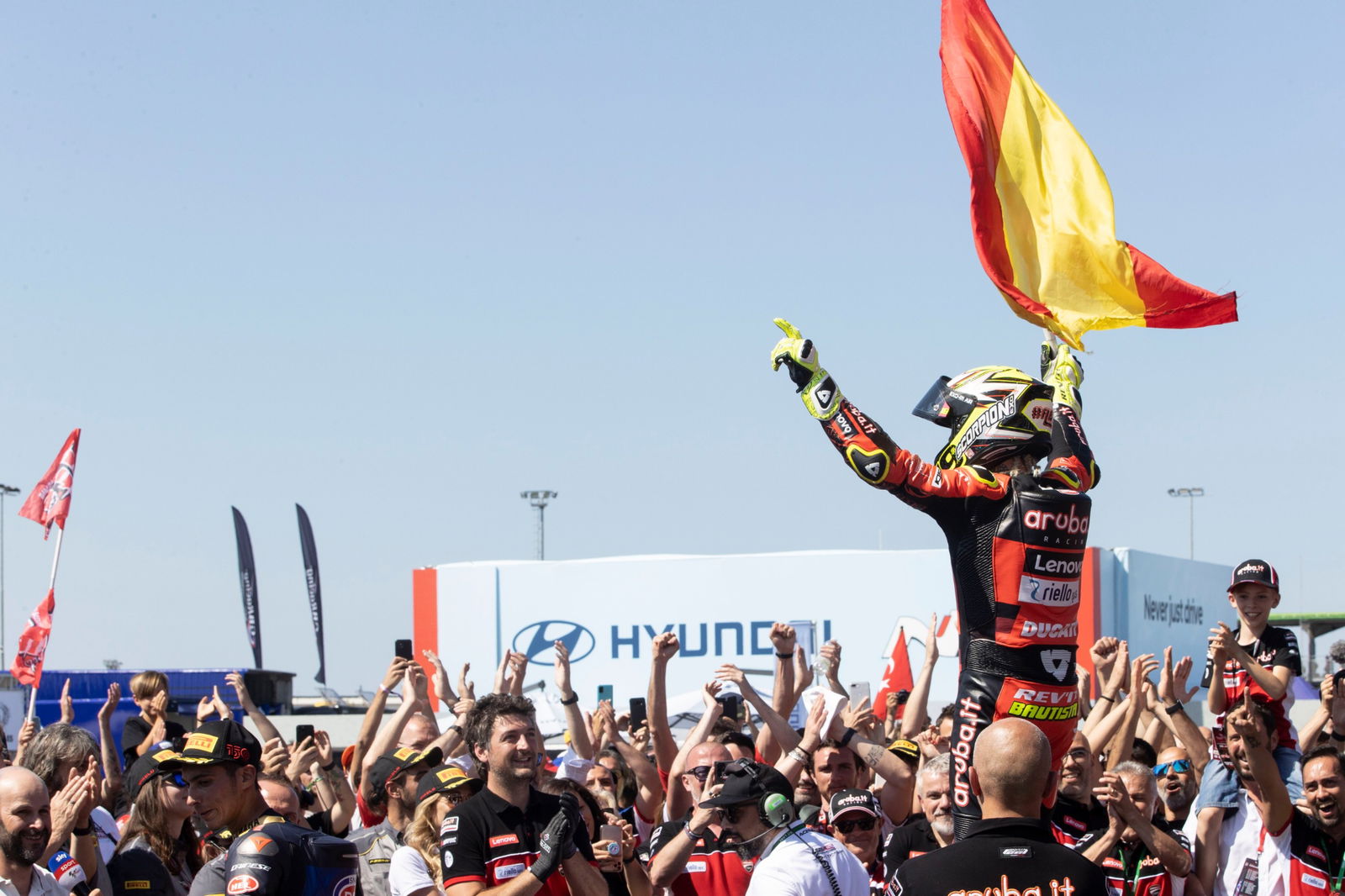
Alvaro Bautista: “Fighting for wins was not my target…”
If anyone is most surprised by the renaissance of Alvaro Bautista, then it is possibly Alvaro Bautista himself.
Indeed, the 37-year old’s return to Ducati for the 2022 WorldSBK season came with a healthy dose of cynicism-laced critique from the sidelines that was quick to reference his crumbling title bid in 2019 and a Honda stint remembered more for the accidents than the accolades,
As it turns out, Bautista also found himself asking ‘what if?’.
Indeed, while the three-time MotoGP podium winner was always optimistic of achieving better results on the Ducati, those two forgettable seasons at Honda left him questioning whether he had the calibre to get into Toprak Razgatlioglu and Jonathan Rea’s ‘frenemy’ fight up at the front.
“I knew with Ducati I could be competitive again but fighting for the good positions or fighting for the victories in all the races was not my target, I didn’t think about that. I just knew that I could enjoy myself again.
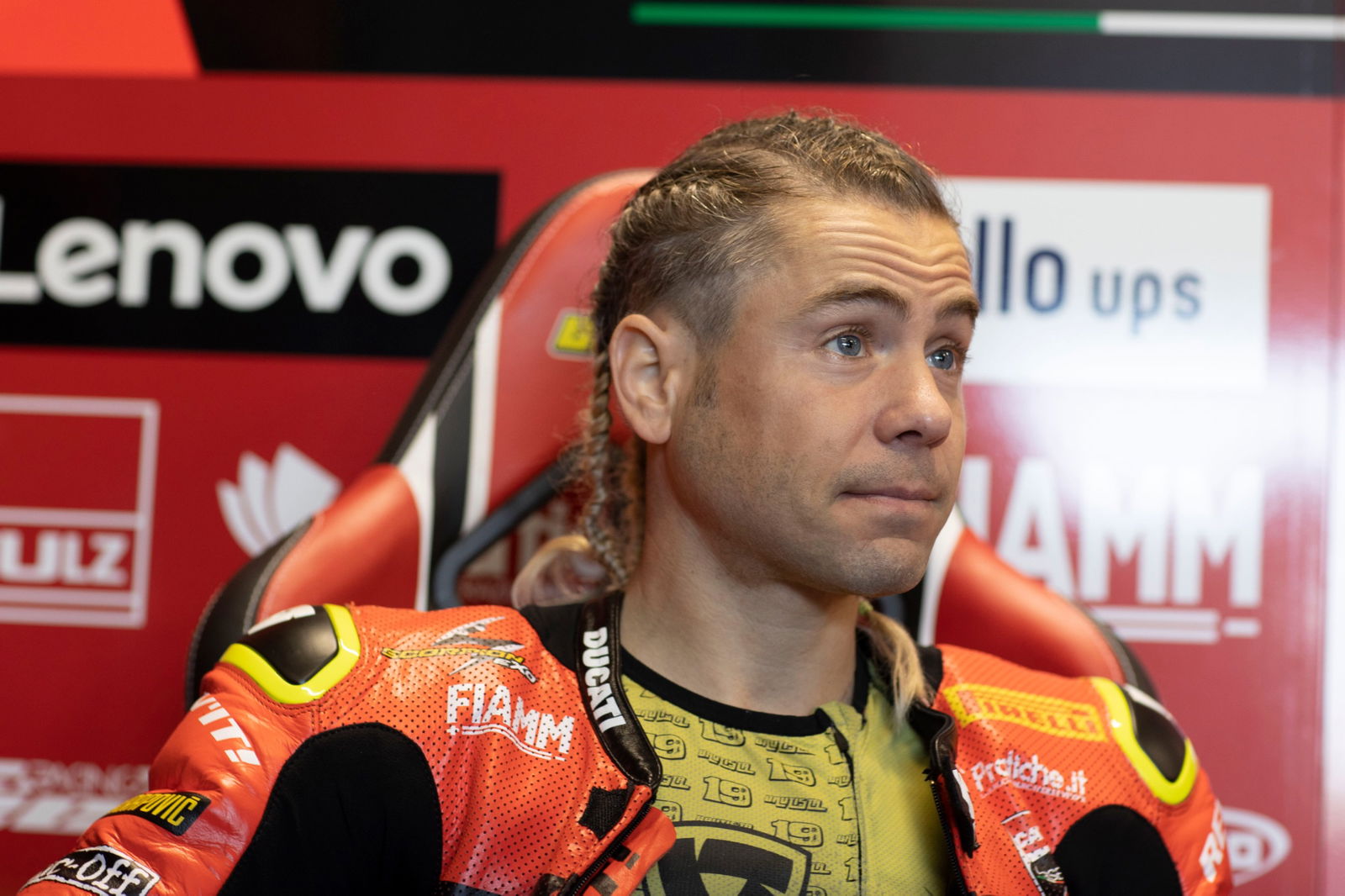
“But I have shown I can be there, in fact I have been fighting in all the races, the podium, I am happy with these positions. It has been very positive and I hope to keep it this way.”
With four rounds down, Bautista already commands a 37 point advantage over Kawasaki’s Rea. Of course we have been here before, but the 22-time WorldSBK race winner is adamant there will be no repeat of the domino-effect that collapsed his 2019 campaign.
“If I went back [to 2019] I would change many things, not only for me but also Ducati as a team. We searched for maybe more in the performance side, maybe we were on the limit and we wanted to find more and more, but it was worse.
“In the end we took many wrong turns, so to recover that confidence and feeling was very difficult. Especially during the last races I was struggling more than I was in the beginning.”
Indeed, while the Bautista of 2019 swaggered with unmistakable hubris as he came, saw and conquered during the first-third of the season, wisdom has taught the Bautista of 2022 to adopt a more conservatve demeanour and not get carried away.
So while three years ago Bautista flew too close to the sun, today he knows not to fix what isn’t broken.
“If I could go back, I would say ‘keep the bike from the first three races’ and do the whole season and don’t try to find more. I think Ducati would decide the same as me if they went back.
“[Now] I have more experience with the tyre, the bike, the tracks, this category. With the other riders I know them much better, the strong points and weak points of them.
“Generally I have more experience and it helps me a lot, not to be faster, but to be more consistent. This is important if we want to fight for something big.”
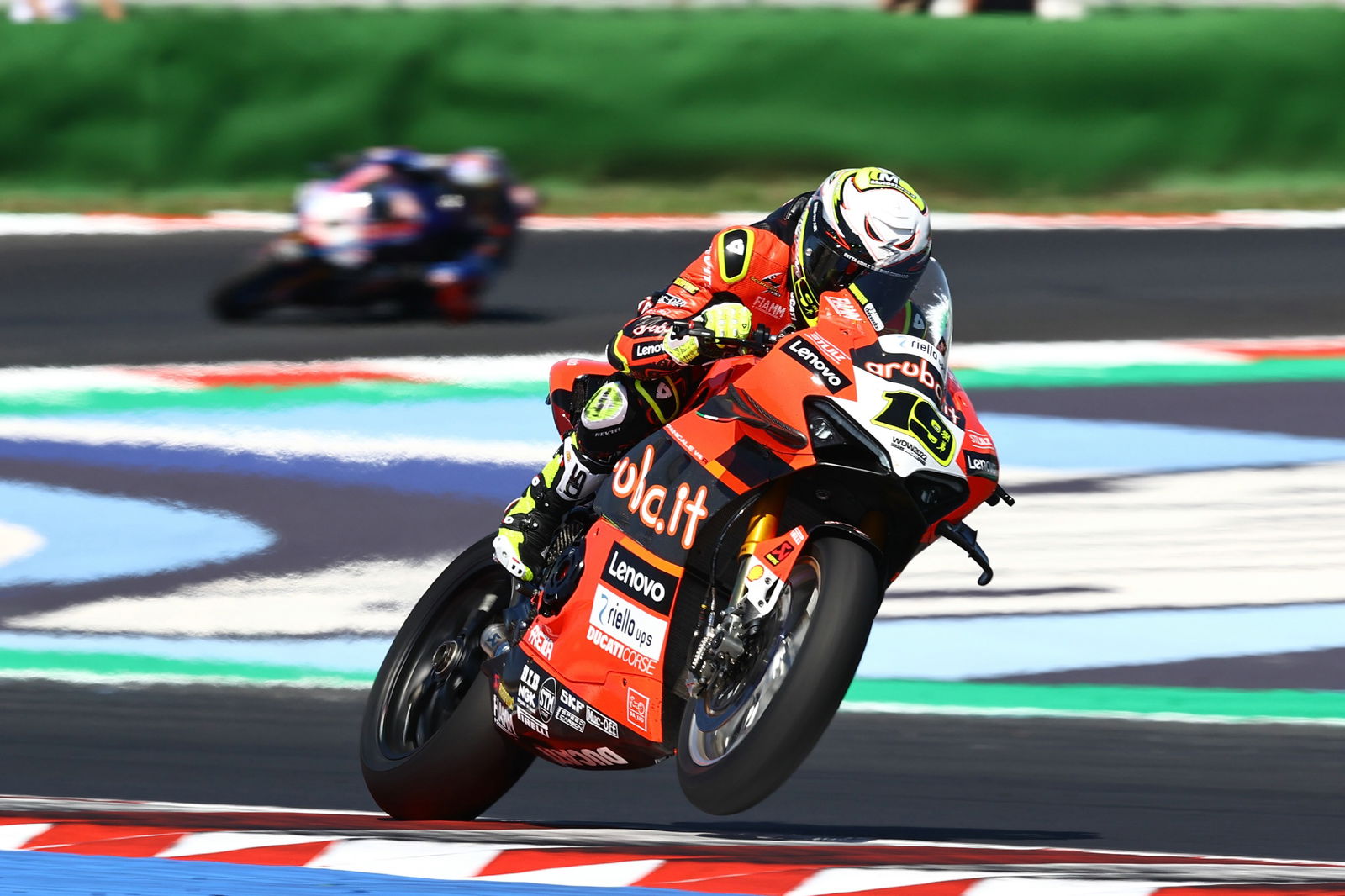
Good things come to those who weight
If the target is big, then the missile certainly is not. Much has been made about the impact of nature versus nurture when it comes to the organic benefits of being a racer with a petite frame and modest weight.
While such an advantage is generally not so pronounced on heavier production-based WorldSBK machines than their grand prix counterparts, Bautista is nevertheless the pocket to his Ducati rocket.
“I am compact, small and aerodynamic,” he gleefully responds as though he’s advertising a new hatchback. “I am 56kg [8.8 stone] without a suit and helmet, all together 65kg [10.2 stone). Tall, I am 1.69m [5ft 5].
Coupled with the Ducati’s slippery aero and V4-propelled grunt under acceleration, Bautista has become a nuisance for rivals exasperated at putting in the physical work of overtaking in the twisties, only to be left defenceless when basic physics drag him back past on the straight.
That said, Bautista isn’t convinced by his rivals’ assertion that his feathery weight gives him a distinct advantage, correctly pointing out he was hitting higher top speeds on the Honda last year. However, where the Fireblade’s weakness under braking and cornering stability left Bautista wincing at every turn, he says his confidence on the Ducati returned almost instantaneously.
“It was a clear moment,” he agrees. “After two years with Honda, I had a position on the bike. First sector I did with the Ducati, it felt like the opposite. I felt very different but I knew it was the position I needed to race.
“With the Honda I was sitting too low and the handlebar was too high, I felt like I was inside the bike. With the Ducati I am up on the bike and the bike is lower, so I can move more easily.
“With Ducati, it is more like a familiar riding style, I don’t need to force it, or think… just ride and feel the moment.”
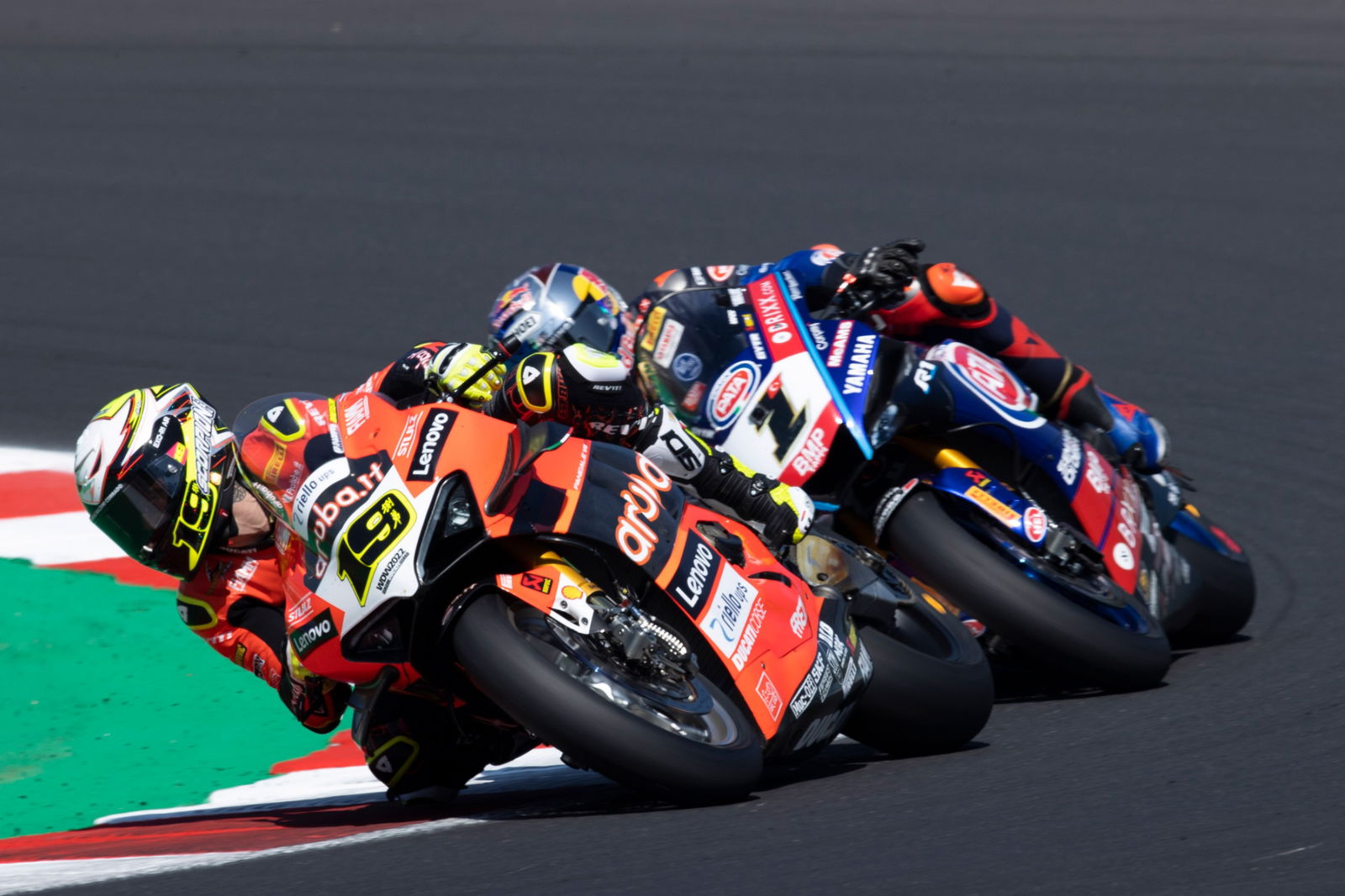
“Every corner, my first thought was don’t crash…”
While every racer needs confidence in the motorcycle beneath them, it’s a level of mechanical assurance Bautista - with his front-heavy, MotoGP style of riding - relies on more heavily than most, in part because it has been absent for more than two years.
Animatedly banging the table three times to emphasise the importance of ‘coupling’ between man and machine, it’s a holy matrimony he simply couldn’t summon on the Honda. Such a disconnect is demonstrated rather tellingly by the ignominy of being named WorldSBK’s most prolific crasher in both 2020 and 2021, according to Dorna.
“It has to be the perfect couple. With Honda I never felt the confidence… I was always feeling the limit. Every corner, my first thought was [inhales sharply and winces] don’t crash, ok I don’t crash.
“Thinking about that every lap, it is not good, so I never felt confident. I am a rider that uses a lot of the confidence the bike gives me to go fast.
“If a bike I am not confident on can arrive at this maximum [indicates a level with his flat hand], then I cannot arrive at this level. If the bike gives me confidence then maybe I can go past this maximum.”
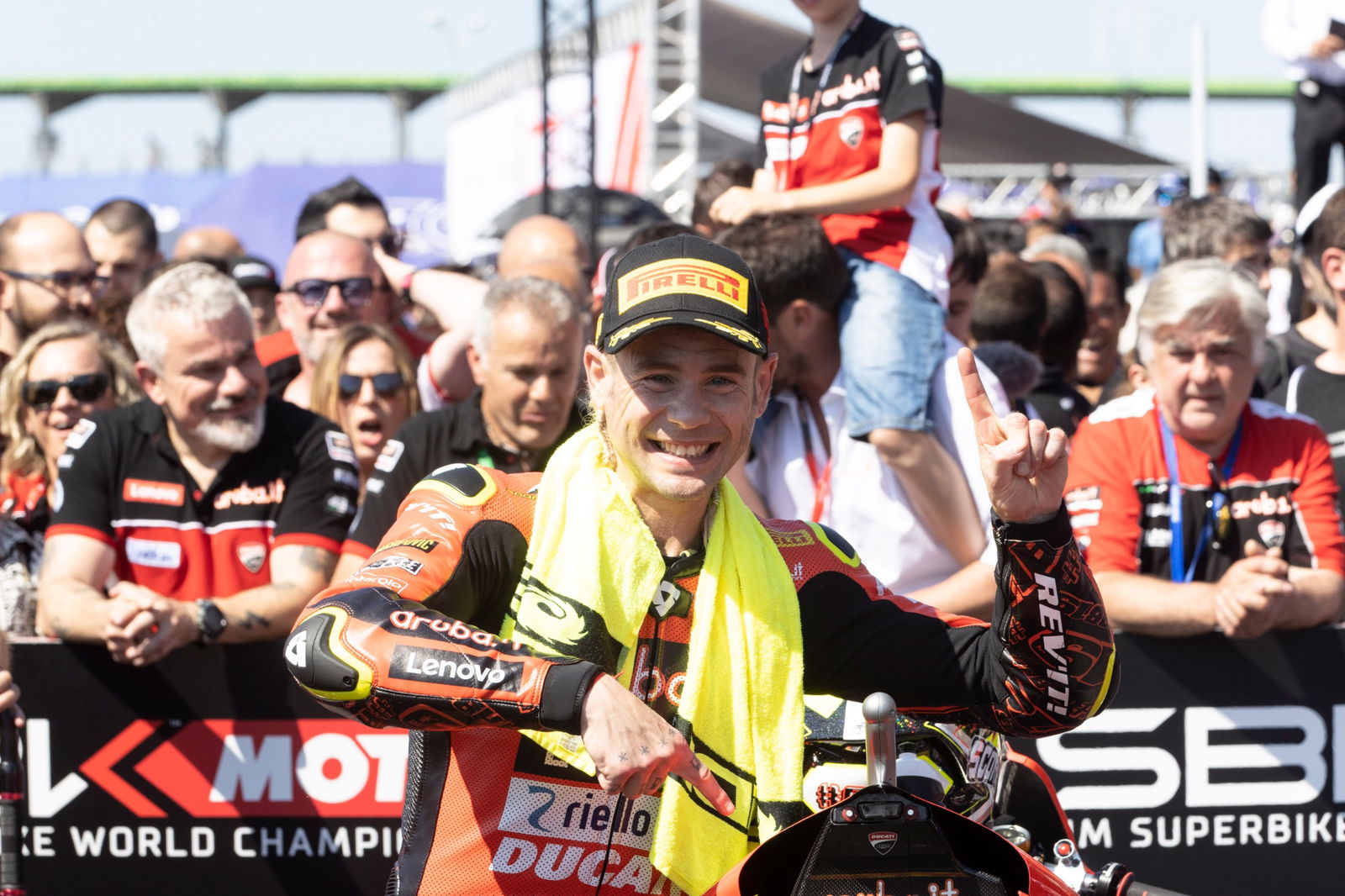
Honda spot
Indeed, the reality of Honda was in stark contrast to the high expectation of Bautista’s high-profile defection from Ducati to the Japanese giant’s rejuvenated full factory WorldSBK programme.
The call from Honda fortuitously came at a time of increasingly frayed relations between Bautista and Ducati, with each pointing the finger of responsibility at one another as the title slipped away.
Amid paddock gossip of a seven-figure pay deal - speculation stirred by Ducati CEO Claudio Domenicali’s accusation he was merely chasing a pay cheque - regardless of the finer details, Bautista paid a price in underestimating the nascent Honda challenge.
“No… definitely no,” he replies with a nervous laugh when asked whether he expected the transition from V4 Ducati to the inline-four Honda to be so tough. “If I’d known, I would have stayed with Ducati.
“HRC came to me and explained the project, about how they wanted to be competitive and fight for the championship. Everyone knows the power of HRC, so in that moment [the deal] felt strong and I thought I could be competitive.
“However, it was a completely new bike, more so than the Ducati was in its first year. We had to fix everything and it was more difficult than I expected, but we worked really hard and in the end we made a big step forward.
“But even when we were competitive, I never felt like the Honda was “my bike”. When I came back to Ducati I felt like ‘this is my bike’.”
With those frayed relations having since been repaired, it might be tempting to view Bautista’s second stint at Ducati as though his time at Honda never happened.
Instead, Bautista extolls the benefits of spending two seasons in the mid-pack honing his race craft as though his time at Honda was just preparing him for his (second) big break.
“I learned a lot. Especially in the good moments, you enjoy them, but in the bad moments you learn. They were two difficult years but I learned a lot about the category.
“I learned how to battle with other riders, the tyres, searching for small details to improve half-tenths.
“I tried to use all of the positives I found or learned in these two years to use now. I have a good bike and a good team and I feel like I am a strong rider.”
For sure, Bautista openly admits the threads of his 2019 campaign and period at Honda have taken a toll on him mentally.
As success comes his way once more, some may view these threads as a risk of history repeating itself. For Bautista, however, it is this history that convinces he won’t make the same mistakes again.
“Mentally, it was very hard so after these two years I know I can be stronger, have a good mentality. Especially when the difficult moments come, I’ll be more assured about myself.
“For sure I will find difficult moments, but in future I hope I use all of the power I found over the last two years positively.”
